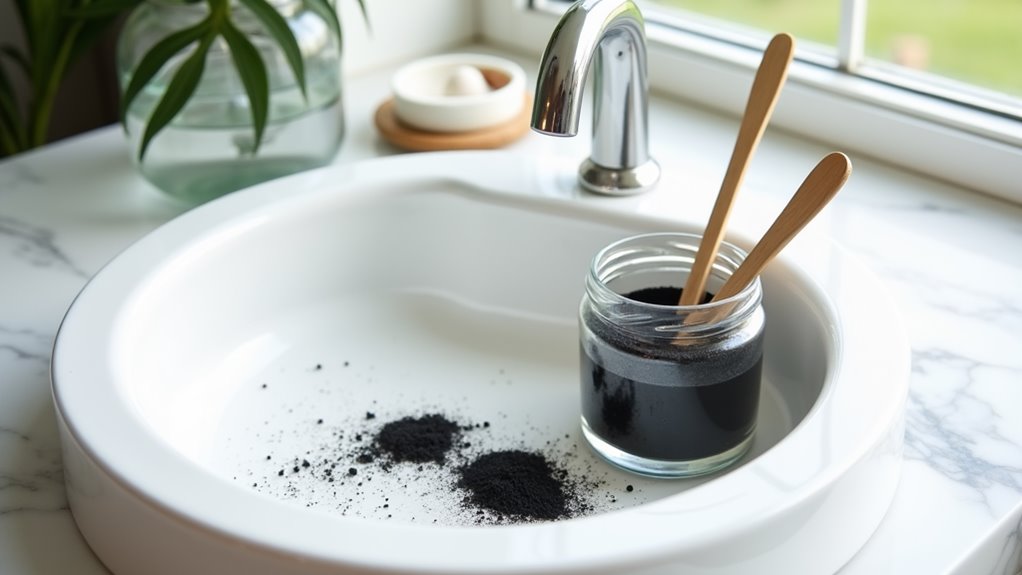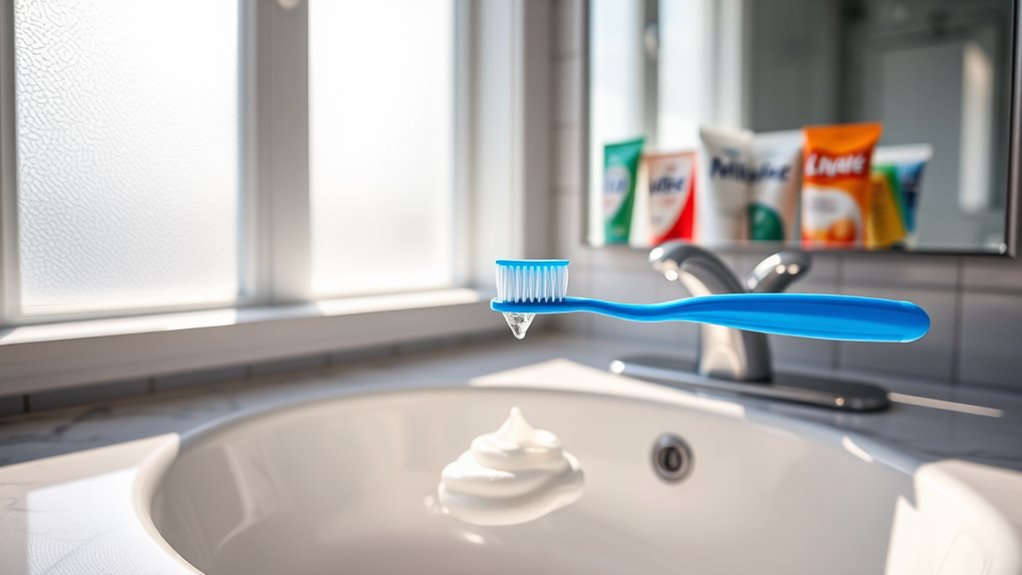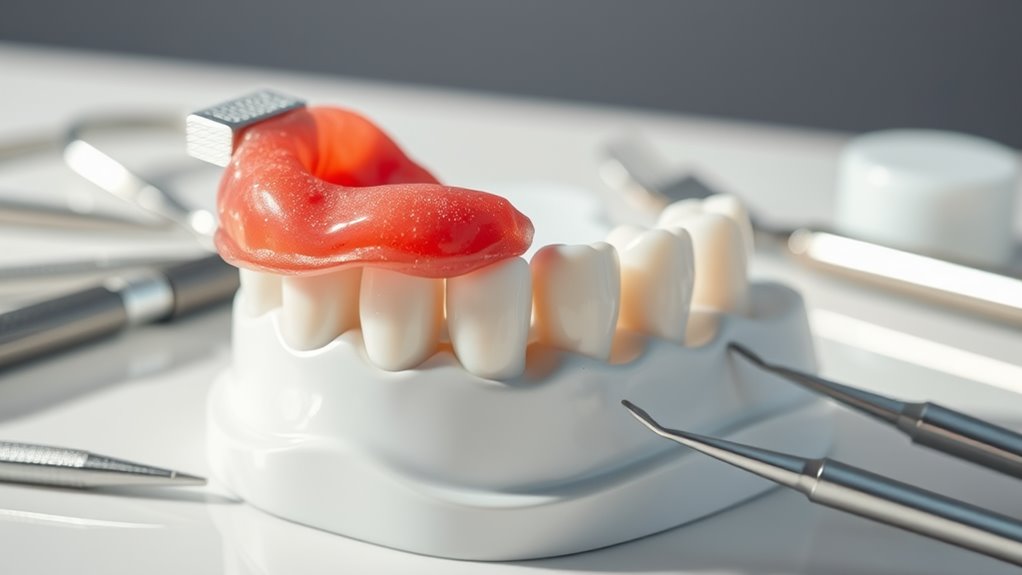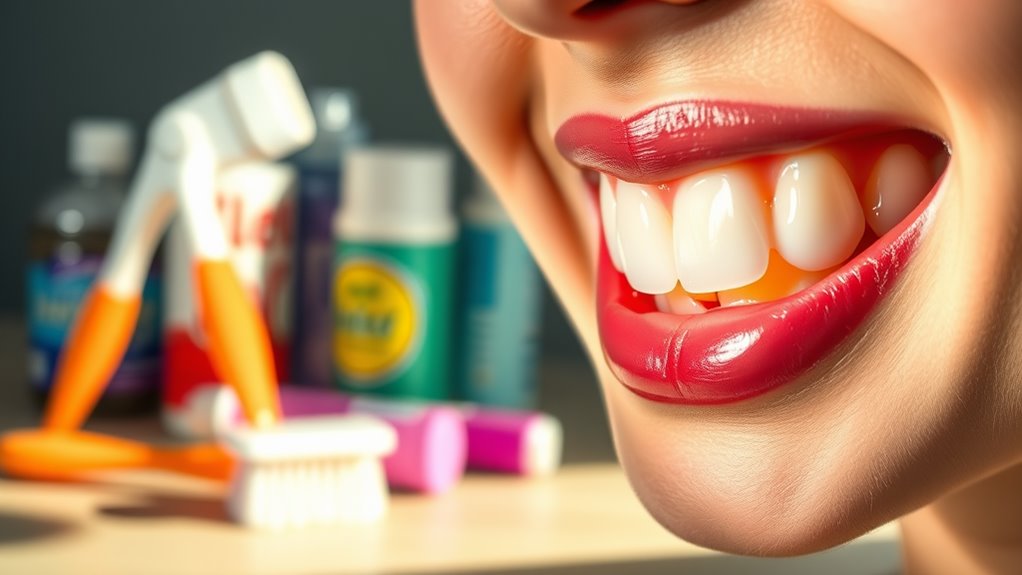Dentists HATE This Trick for Naturally Clean Teeth!
You’ve probably heard wild claims about natural dental care, but there’s one ancient practice that’s gaining serious attention from researchers. Oil pulling, a technique that’s been around for thousands of years, can transform your oral health without expensive products or harsh chemicals. While dentists might not tell you about this method, studies show it’s effective at reducing plaque and fighting gum disease. Let’s explore why this simple practice has modern science taking notice.
The Ancient Practice of Oil Pulling: Science Behind the Claims
While oil pulling dates back thousands of years in Ayurvedic medicine, modern research has begun to validate its effectiveness for oral health. This ancient trick for clean teeth involves swishing coconut or sesame oil in your mouth for 15-20 minutes, allowing the oil to trap harmful bacteria and toxins.
Scientific studies show that oil pulling can significantly reduce plaque formation and gingivitis. The process works through saponification – the oil reacts with saliva to create a soap-like substance that cleanses your mouth.
You’ll find it’s particularly effective at reaching areas between teeth that brushing might miss. The antimicrobial properties of coconut oil make it especially powerful for this technique. Additionally, incorporating oil pulling into your routine can enhance overall dental hygiene.
When you practice oil pulling regularly, you’re not just following a trendy wellness hack – you’re engaging in a scientifically-supported method for maintaining oral hygiene that rivals modern dental products.
Natural Alternatives to Commercial Toothpaste
Beyond oil pulling, you’ll find several effective natural alternatives to replace commercial toothpaste in your daily oral care routine.
Baking soda mixed with coconut oil creates a powerful natural cleanser that neutralizes harmful acids while gently polishing your teeth. Add a few drops of peppermint essential oil for fresh breath and antibacterial properties.
Another innovative solution combines activated charcoal with bentonite clay. This mixture helps remove stains and toxins while remineralizing your tooth enamel. You can enhance its effectiveness by incorporating neem powder, known for its potent antimicrobial qualities.
For a simple yet effective option, try sea salt combined with hydrogen peroxide. This mixture kills harmful bacteria and whitens teeth naturally.
If you’re concerned about sensitivity, blend in some food-grade diatomaceous earth, which provides gentle cleaning action without abrading your enamel. These natural alternatives not only clean effectively but also avoid the artificial sweeteners, preservatives, and harsh chemicals found in commercial products. Additionally, using these natural methods can help protect your tooth enamel from being eroded by harsh ingredients often found in conventional toothpastes.
The Power of Dietary Choices in Dental Health
What you eat plays a pivotal role in maintaining healthy teeth and gums. Your dietary choices can either fortify your dental health or accelerate tooth decay. By focusing on nutrient-rich foods, you’ll create a natural defense against cavities and gum disease.
Load up on crunchy vegetables like carrots and celery, which act as natural toothbrushes by scraping away plaque and stimulating saliva production. Foods high in calcium and phosphorus, such as cheese and almonds, help remineralize tooth enamel.
Vitamin C-rich fruits boost your gum health and fight harmful bacteria. You’ll want to limit acidic and sugary foods that erode enamel and feed harmful bacteria. When you do consume these items, rinse your mouth with water afterward.
Green and black teas contain polyphenols that suppress bacterial growth, while fermented foods introduce beneficial probiotics that combat harmful oral bacteria. Additionally, incorporating calcium-rich foods into your diet can significantly enhance enamel strength. These smart food choices complement your regular dental hygiene routine and promote lasting oral health.
Traditional Herbs and Spices for Oral Care
Throughout history, civilizations have harnessed the power of herbs and spices to maintain oral hygiene and treat dental issues. You’ll find these natural ingredients are still effective today, offering antibacterial and anti-inflammatory properties that can transform your oral care routine. Additionally, incorporating adequate vitamin D into your diet can further enhance your dental health by strengthening your teeth and supporting enamel resilience.
| Herb/Spice | Benefits | Usage Method |
|---|---|---|
| Neem | Antibacterial, Anti-fungal | Chew stick, powder |
| Clove | Pain relief, Antimicrobial | Oil, powder rinse |
| Turmeric | Anti-inflammatory, Whitening | Paste, powder mix |
| Cinnamon | Fights bacteria, Fresh breath | Mouthwash, powder |
| Sage | Gum health, Breath freshener | Tea rinse, tincture |
You can easily incorporate these powerful natural ingredients into your daily routine. Try making a simple mouthwash by steeping sage leaves in warm water or create a tooth powder using a combination of these spices. These traditional remedies work alongside modern dental care to enhance your oral health naturally.
Building an Effective Natural Dental Care Routine
Creating an effective natural dental care routine requires a thoughtful blend of traditional remedies and consistent practices.
Start your day by oil pulling with coconut or sesame oil for 15-20 minutes while you prepare for work. Follow this with a natural tooth powder made from baking soda, sea salt, and essential oils like tea tree or peppermint.
Throughout the day, rinse your mouth with salt water after meals and chew on fresh herbs like parsley or mint to freshen breath naturally.
In the evening, brush with a natural bristle toothbrush and clean between teeth using natural fiber floss coated in beeswax. Before bed, apply a paste of turmeric and coconut oil to your gums for their anti-inflammatory properties. Oil pulling has also been shown to promote a healthier oral environment by reducing harmful bacteria in the mouth.
Remember to replace your natural toothbrush every three months and store your DIY dental products in airtight containers.
Consistency with these natural alternatives will help maintain optimal oral health without harsh chemicals.




